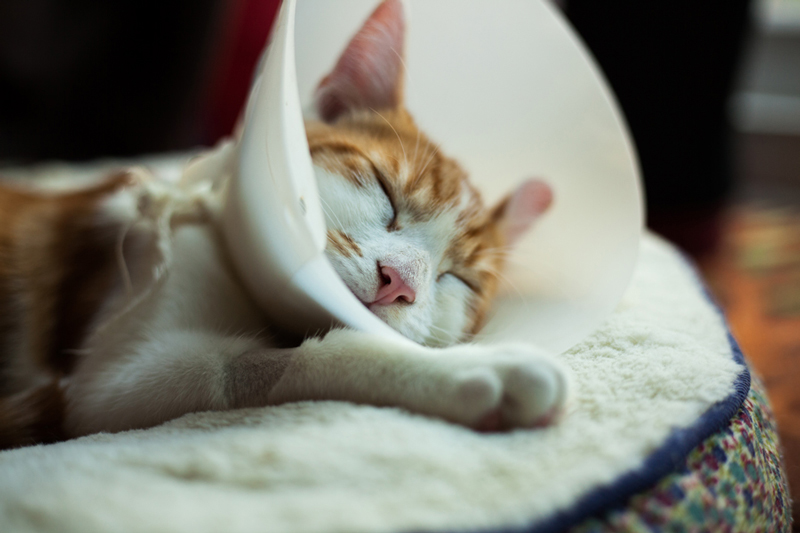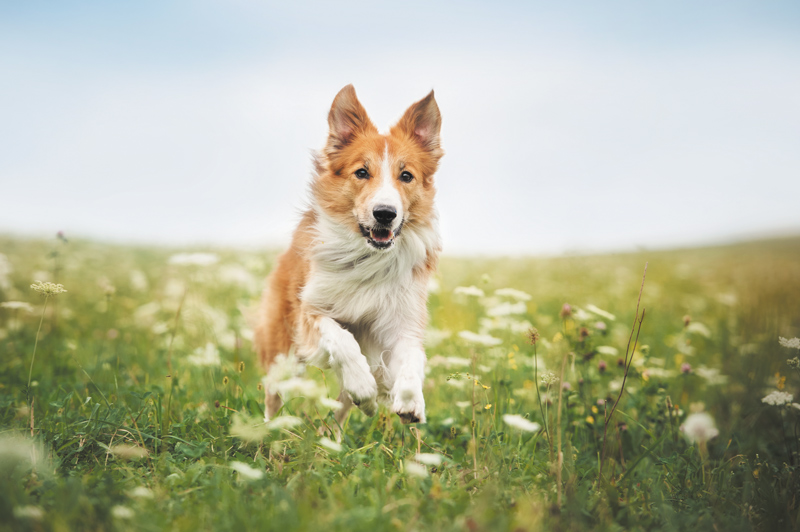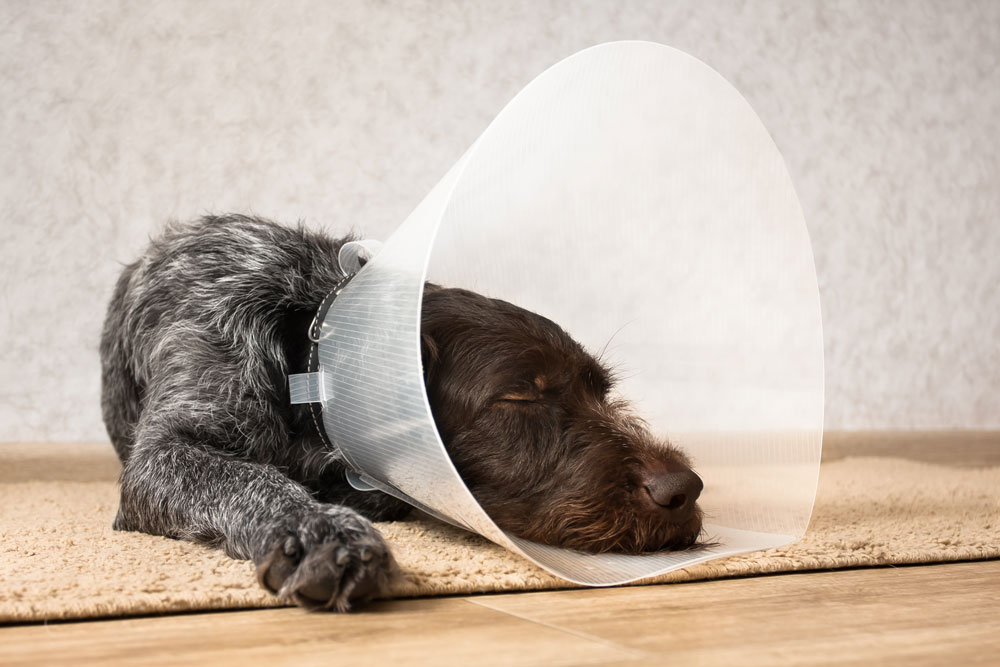What is neutering?
Neutering is a surgical way to stop reproduction. In males it’s called castration and in females it’s called spaying.
During castration both testicles are removed. This prevents fertility and also reduces the amount of the male hormone testosterone.
When a female is spayed, the ovaries and uterus are removed which makes the female unable to become pregnant.
Both operations are carried out under a general anaesthetic and are very safe. Painkillers are given during and after surgery and you will be able to take some home to use in the days following surgery. Most pets are up and about a few hours after surgery and recover quickly.
There are many reasons to protect your pet, the community and the population by neutering, but the 8 top reasons to do so are:

1. Population control
There are already far too many cats and dogs to go round. It’s hard to gauge exact figures but it it’s estimated that 3.9 million dogs and 3.4 million cats enter shelters across the UK each year.
Out of all the abandoned animals, only 10% have been neutered, and few are microchipped or have ID. Don’t think that breeding from pedigrees stops abandonment either. 25% off shelter residents are specific breeds.
2. Helps females live a longer and healthier life
Spaying helps prevent nasty womb infections such as pyometra, which is seen quite often in un-neutered females and can be fatal. It also hugely reduces the risk of breast tumors, which are malignant or cancerous in about 50% of dogs and 90% of cats. Recent studies (Hart et al, 2020) suggest best neutering ages based on different breeds due to varied pros and cons, therefore, please discuss the right timing for your dog’s spay with our nurses or vets by contacting the practice. In cats, we recommend neutering females at around 5-6 months of age.

3. Your female won’t go in to heat
While cycles can vary, female cats can usually go into heat for four to five days every three weeks in breeding season. They become desperate for a mate, act in strange ways, make howling noises and urinate more frequently wherever they find themselves. Keeping them in during this time makes no difference either – they will still howl, wee and scratch to get out. It can be so dramatic that seasons are often mistaken for some immensely painful and debilitating illness by owners who don’t know what’s going on with their pet.
When a female dog is in season she becomes the most desirable thing an entire dog has ever seen. The odour makes them highly traceable, and even keeping them inside has resulted in male dogs pushing down fences and howling at doors just to get to them. It can be messy too as they produce a bloody, sticky discharge for three weeks or more.
Many unneutered female dogs have a false pregnancy after a season and, although this is natural, it can cause behavioural and even medical problems.
4. It’s cost effective
Your pet’s spay/neuter surgery is far less than the cost of having and caring for a litter.
You’ll also save money on your insurance premiums if your pet is neutered, and you’ll not incur any of the costs associated with illness and disease resulting from remaining entire. Even insured pets who get sick still have an excess to pay each time, and many won’t be covered for a recurring infection or after the first year if they’re left with a chronic problem.
As unneutered pets are more aggressive, there are also battle wounds to consider. When hormones rage, cats and dogs don’t hold back. An unneutered dog is more likely to be the target of aggression from another dog, too, even if they don’t initiate the conflict.
5. It stops them roaming
An intact male will do just about anything to mate and will be very frustrated by being restricted. The urge is almost overwhelming and they will find ingenious ways to escape from house and garden, and dogs will disappear on walks. Once he’s free to roam, dogs risk injury in traffic and both cats and dogs will fight with other males (and unwilling females).
6. Neutering prevents testicular cancer in males
Neutering your male companion prevents testicular cancer and some prostate problems.

7. Reduces unwanted behavior and aggression
Your neutered male may be better behaved and be generally more sociable and nicer to have around.
Unneutered dogs and cats are more likely to mark their territory by spraying strong-smelling urine all over the house whereas neutered cats and dogs focus their attention on their human families and aren’t bothered about marking their territory. Once furniture or carpets have been ‘marked’ in this way, it’s almost impossible to eradicate the smell which is unpleasant to have in the house, but also marks this area as a toilet for your pet making them highly likely to re-offend!
Some aggression problems may be avoided by early neutering too. Surgery will reduce the amount of testosterone in your male’s system, although it won’t eliminate the hormone completely so if your pet has learnt behaviours resulting from hormones before being neutered and these have become habitual, then changes might be slow to happen or lessened which is another good reason to neuter as soon as it’s possible.
An unneutered dog is likely to try and scratch their particular itch themselves by mounting, and this is often at inconvenient times and on inconvenient objects such as your favourite cushion, child or leg.
8. Neutering does not cause obesity
Neutering in itself won’t make your pet fat, but you might need to decrease the amount of food you give them and/or increase the amount of exercise – this is due to the reduced energy expenditure from hormonal activity in the body.
Your pet will remain the shape they are as long as you keep an eye on their food intake. There are also pet foods specially formulated for the nutritional and calorific needs of neutered pets that are worth investigating.
Remember that if you’re a member of our Vista Pet Club, you get a discount on neutering your pet.
Your small monthly payments include discounts on numerous products and procedures, including neutering. As well as, vaccinations, home delivery of parasite treatment and much more.



